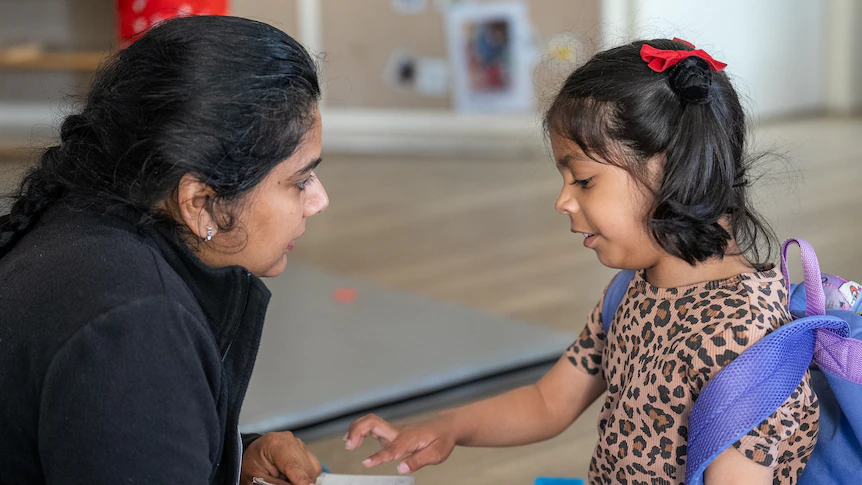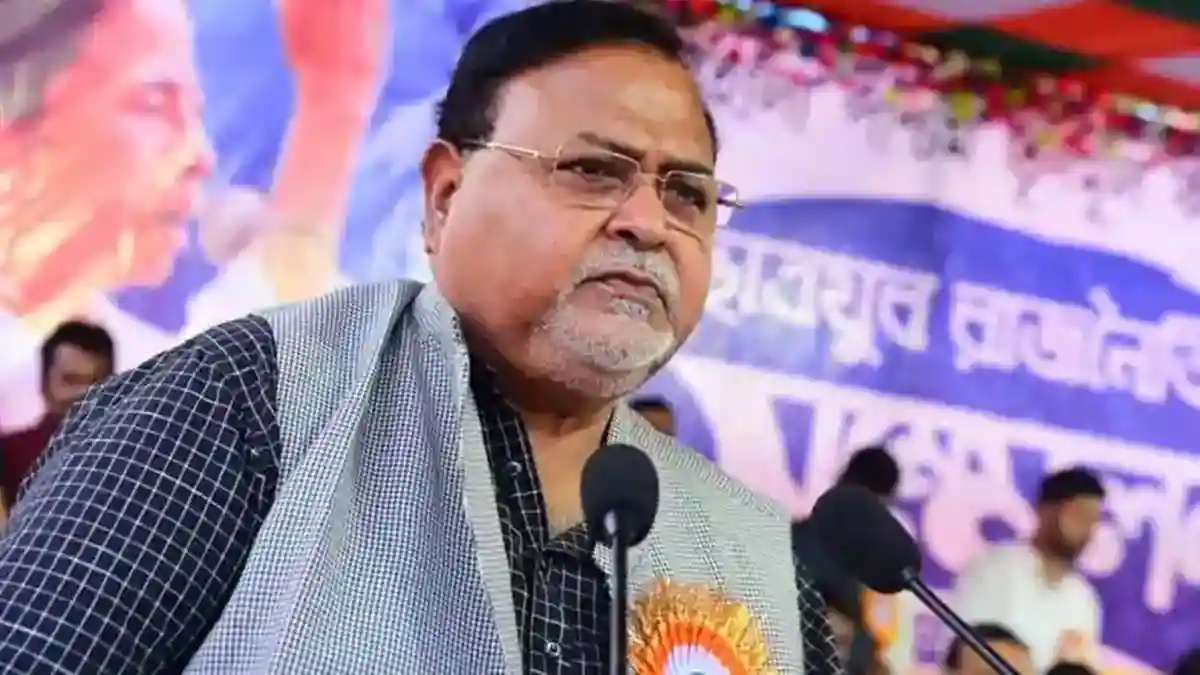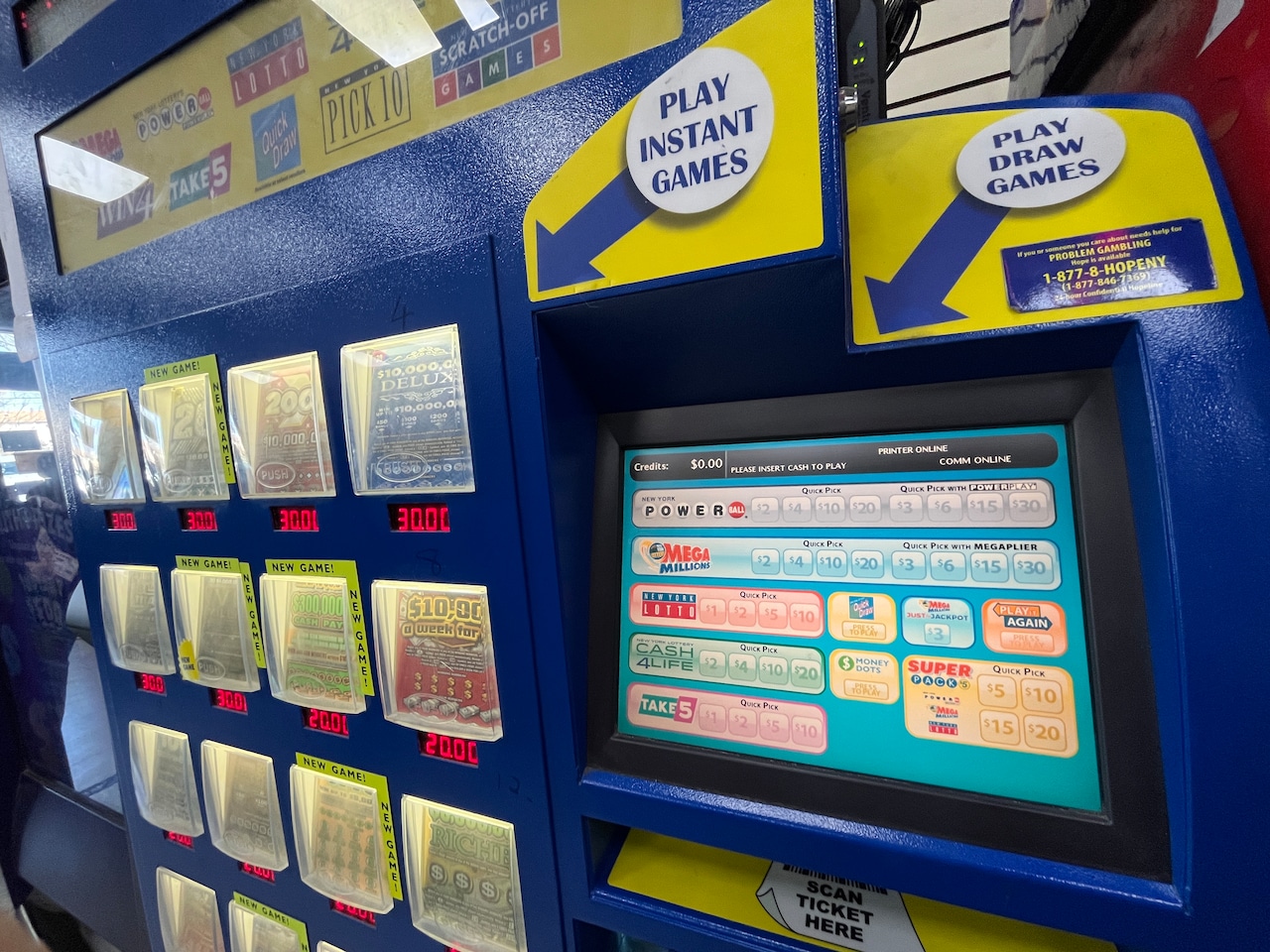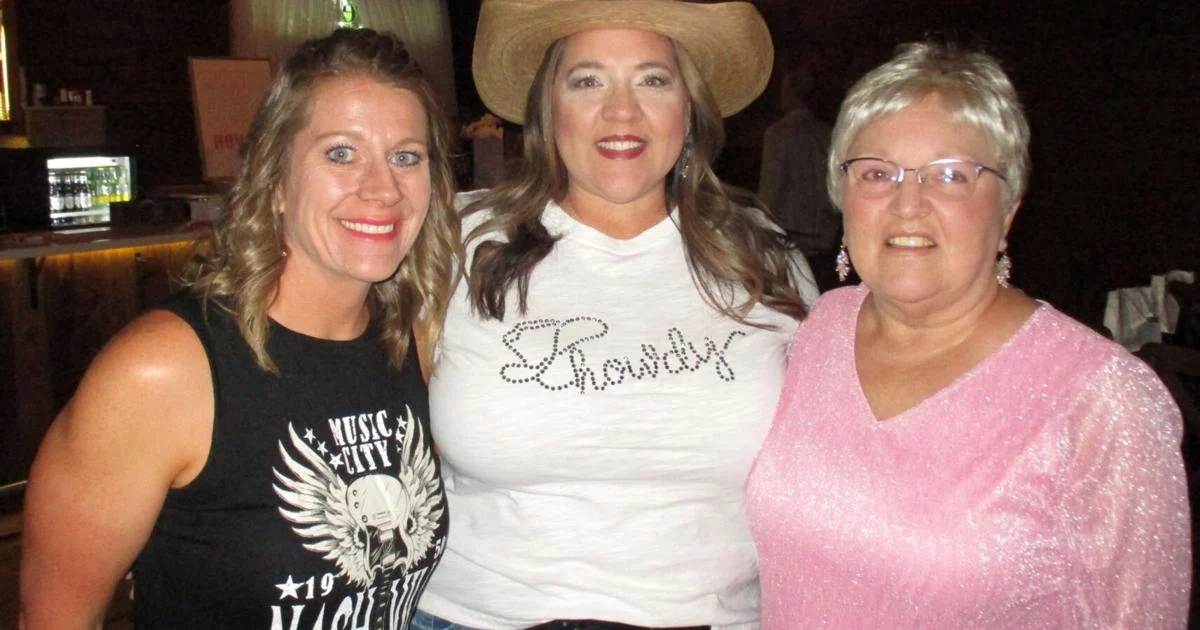By Evan Young,Nas Campanella
Copyright abc

Eighteen months ago, Isabella Amin noticed her daughter Sienna, who is autistic, was not speaking, interacting with other kids, or eating more than a few different foods.
But since enrolling Sienna in a unique preschool run by Koorana Child and Family Services in Sydney’s south-west, Ms Amin said her daughter, now five years old, had become “a whole new child”.
“She’s got 50 plus words, she’s trying to put sentences together … it’s a big improvement.”
Sienna’s diet also now consists of more than 50 items, which is a big source of pride for her mum.
Her preschool is one of three mainstream early learning centres run by Koorana that reserves 25 per cent of its places each day specifically for children with disability.
While playing and learning alongside their non-disabled peers, kids can also access early intervention services on-site, such as speech, occupational and feeding therapy.
The pre-school has sensory spaces and uses visual aids such as picture books to support children to communicate in different ways.
The learning has not just been for Sienna, though — therapists and educators have been connected with Ms Amin to upskill her so she can assist her daughter’s development at home.
Koorana CEO, Morgan Fitzpatrick, said the model could provide a blueprint for Thriving Kids — the NDIS alternative for kids with “mild to moderate” developmental delay and autism, announced by the government in August.
The program aims to divert children with lower support needs off the NDIS, which is expected to cost more than $50 billion this financial year, and ensure some level of support exists outside the scheme.
Parents and advocates were caught off guard by the announcement of Thriving Kids and have been desperate for more information ever since.
While NDIS Minister Mark Butler flagged the phased rollout of the program would begin on July 1 next year, the program has yet to be designed.
How it will work and where it will operate is unclear, though Mr Butler said the program would leverage “existing systems”, such as early childhood centres.
Ms Fitzpatrick said her centres had been filling a huge gap, particularly for families ineligible for the NDIS due to visa status or their kids’ delays not falling into the scheme’s criteria.
“It’s important their needs are met … they still have very genuine needs that will require ongoing support,” she said.
‘We’ve got you’
Like Ms Amin, Kristy Theobald has also seen her family transform thanks to a community group.
When she went to her first parenting peer support group run by not-for-profit Belongside Families to learn how to help her autistic son Dash, she bawled her eyes out.
Ms Theobald, who lives on the NSW Central Coast, said it was a relief to receive her son’s diagnosis when he was a toddler after noticing he wasn’t talking or moving.
As well as getting her own autism diagnosis, the peer support groups enabled her to make friendships, learn how to advocate for Dash and gain practical parenting skills.
She has now begun leading the groups.
“I find other participants love that I’m also autistic. Because I’m an adult [they can hear] from someone who is all grown up,” she said.
“I remember what it felt like not having any support … so I wanted to hopefully be in a position where I could be that person welcoming somebody in and saying, ‘we’ve got you’.”
Belongside runs around 250 online groups a year, reaching almost 7,000 families via online sessions about self-advocacy and how to navigate the education and medical systems.
It has also begun hosting in-person coffee catch-ups with families across Western Sydney.
“Parents enter this world of raising a child with disability, which is really complex in terms of the systems you need to navigate … and so many families feel overwhelmed,” CEO Stacey Touma said.
“We provide a safe, trusted space where they can connect with other families who are living it and they’re able to share that knowledge.”
Ms Touma said she hoped Thriving Kids could provide services in the home as well as early childhood centres.
Advisory group meets, submissions open
The final design of Thriving Kids will be settled between the Commonwealth and state and territory governments, with guidance from an advisory group of experts and stakeholders.
The advisory group, which Ms Fitzpatrick is part of, will meet for the first time today.
A parliamentary committee is accepting written submissions until October 3, while a survey about families’ experiences of accessing support for children will be open until October 10.
In a statement, Mr Butler said he was “determined to deliver a better system that will help our kids thrive”.
“I am thankful to the advisory group for coming together, they have a … high level of expertise and experience,” he said.
“With their help, and community voices we have already heard, our government will work with states and territories to establish mainstream and community-based supports nationally that help children to thrive in their development.
“This will benefit children aged eight and under with mild to moderate support needs associated with developmental delay, autism and disability, without requiring them to become part of the NDIS.”
Ms Fitzpatrick said Thriving Kids represented a “huge opportunity” to help more families, but there was just as much work to do before the program could be declared a success.
She said so much of the success of Koorana’s model was down to working directly with parents and making them feel supported.



